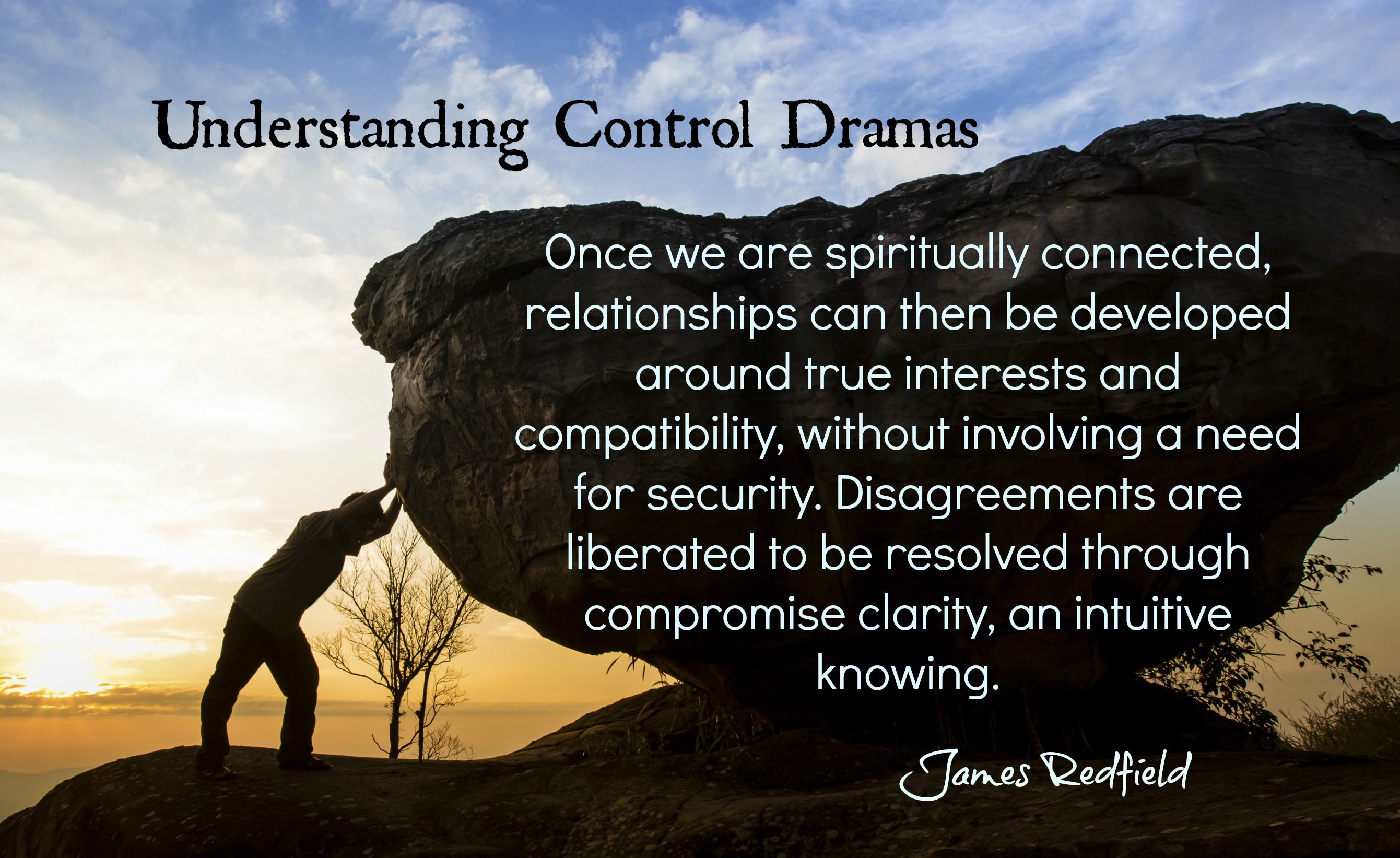A Deeper Look At The Poor Me Control Drama
This is the most passive of all the “Control Dramas.” This style is designed to get the other person to feel sorry for them using this indifferent manipulation. This lures them in to connect or reconnect with them in sympathy, which shifts the energy of the jointly connected minds to their control.
Here is how it works: the drama is designed to make you feel like you did something wrong, and were not “there” for them in a time of need. They may say something such as, “You were not there for me when all these bad things were happening.” Or more boldly, “After all I have done for you, you let me down like this.” This suddenly throws you off balance and brings your attention and connection back to them, as you consider whether what they are saying is true. When the game fully works, you connect deeply with them, trying to make amends.
When this happens, they feel good but you, in turn, feel drained or weakened. This is because they have seized control of the joint mind the two of you have created, moving you into a kind of voluntary deferral to their dominance.
You know that this is a game because even if you think they might have a point and you try to comfort them, they never quite interact authentically. They always carry the air of one wronged. No matter how attentive you are, they want more, and they often repeat the game by naming some other guilt-inducing accusation at you.
How do you end the “Poor Me” game?
The solution is simple, though sometimes difficult. Dr. Eric Bern, in his famous book “The Games People Play,” advised a simple solution where you do not angrily fight back or leave, but instead help them break out of their game. You “name the game.” In fact, naming the game is exactly what you have to do to stop any of the other “Control Dramas” as well.
One person cannot play games successfully, unless the other person who is being manipulated plays along, to some extent. Usually, this happens when they are not honest about what they feel, or often using a counter game of their own. By naming the game, you bring the interaction back to authenticity by honestly revealing what you feel.
Plainly say something such as, “Sometimes I feel you try to make me feel guilty in order to control me.” What you are saying is the truth as you know it, and the truth always sets you, and the other person, free.
Now they might argue with you, or guilt trip you a little more, but stick to your guns. Say, “I am just telling you how I feel.” Pose it in that way because it might be possible you are wrong. They are reacting rational to the situation, and everything they say is true. If that is the case, then that truth will also emerge once the conversation becomes authentic.
Another principle to employ in breaking the game, while also moving the interaction into a more genuine state, is to not use what you are saying to seize the connection back under your dominance. In fact, make sure that you speak to them with the assumption that they are rising into their own Divine Connection. In this way, they will be more likely to feel a greater increase in energy and will be less dependent on yours. Lastly, keep the conversation honest by sharing your own “Control Drama” tendencies with them.

Cultivating Healthy Boundaries
Creating and maintaining healthy boundaries is a life skill. It requires a confidence that allows us to feel as though we deserve to be respected, and though it seems many of us are born with it, often it slowly wanes over time. As our childish innocence falls to the side, we try to figure out […]

Celestine Prophecy Secrets: Staying Out of Control Dramas
If you have read the Celestine Prophecy, then you know that “Staying out of CONTROL DRAMAS” is essential to becoming more Conscious and being able to create the life you want. Remember, THE CELESTINE PROPHECY reveals 9 of 12 truths about how the world “really” works and how humanity is destined to come into alignment […]

Deconstruct The Seven Sins & Love Your Life
Our species have struggled with the “seven sins,” for longer than the clock has ticked. And it seems to me that these negative behaviours all have two things in common: they are triggered by trauma and rooted in Fear. When something happens that we can’t rationally compute, fear sets in, and it can morph into […]

Can Love Really Change The World?
If we think of Life as an ocean, and ourselves as water particles existing within it, I think it’s easy to imagine how we are all actually one. The energy of Life carries us along; sometimes it’s rough with us, sometimes it’s soothingly calm – at times, we’ll get pulled down by undercurrents into complete […]

Healing A Broken Heart
The door closes. They are gone. That part of your life is now in the past, and the one you loved is yours no more. Sometimes, a break-up will be filled with immediate relief (mostly, it will be filled with sadness) but this scenario has the potential to tear your heart from your chest and […]

Moving Through Restlessness Back Into The Flow
As I look back at my pattern of growth, it seems like I always start with the First Insight. The Restlessness seems to knock me out of my Synchronistic flow and then into a state of confusion, filled with unknowing and a lack of inspiration. Getting back into the flow is as easy as staying […]

Taking Responsibility for Control Dramas in Relationships
As Autumn and I were discussing her article, Letting Go of Anger in Relationships, we realized how much it resonated with my own relationship. Our stories may all be slightly or even totally different, but we can all relate to each other once we have an understanding of how we compete for energy. I think […]

CREATING A SUPPORTIVE RELATIONSHIP
Relationships…When they are healthy and balanced, they can be life-giving and energizing. A supportive relationship, founded in love, whether it is romantic or friendship based, can offer an invigorating level of companionship and life-long support. In a balanced relationship, energy and is given back and forth, and grows — uplifting both people into their highest creativity. […]

Poor Me Control Drama: How to Respond
We’ve all been there. We have a friend, loved one, partner or co-worker who starts complaining about how life has dealt them some pretty rotten hands. They go on and on. They’re inconsolable. We may care and want to help them, but we may find ourselves needing space from their constant pessimism and complaining, which […]

Understanding Control Dramas
As we start to understand that “Control Dramas” exist, we can further enhance our awareness of these behaviors displayed by others and ourselves. In this way, we can take the steps to transcend and interpret them on a much deeper level, both spiritually and psychologically. People seek to control others. It can be seen that […]

